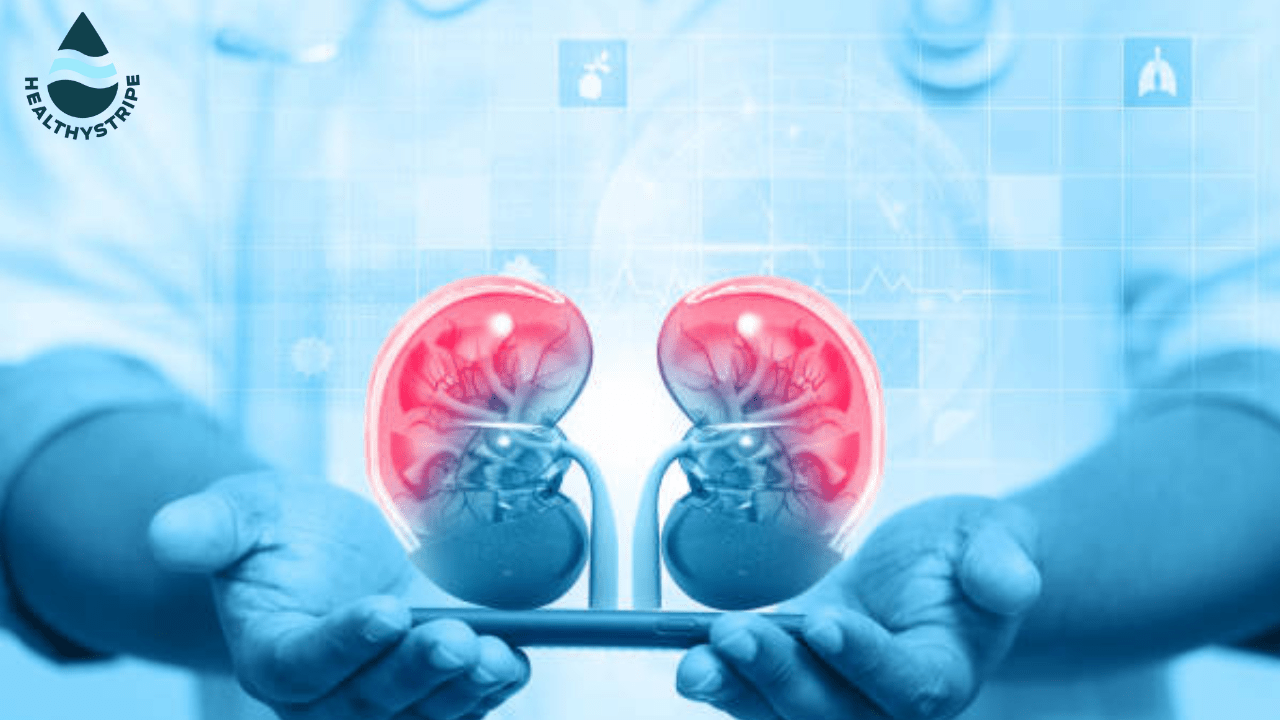Hyperchloremia: Understanding new High Chloride Levels

Our body is not just 70% water. It has complex metabolic processes going on all the time that need certain chemicals. Chloride ion is essential for homeostasis( fluid balance ) in our body as well as regulating nerve impulses. It is also part of stomach juices that aid in digestion.
While Chloride has its benefits, excessive levels of this ion may result in elevated blood pressure, fatigue and skin dryness.
Let’s understand the condition in detail.
[lwptoc title=”Table of Contents”]
What is Hyperchloremia?
The normal levels of chloride in our body are around 98 – 107 mEq/L. If it exceeds this level you may be diagnosed with hyperchloremia.
What are the Symptoms of Hyperchloremia?
The symptoms are rather vague and often go undetected. It may include
- Water retention– Higher salt levels lead to fluid accumulation in tissue spaces and extracellular compartments. The symptoms may be swelling of the ankle, bloating and puffiness of the face.
- Excessive thirst- Since hyperchloremia is often associated with fluid loss, it may lead to excessive thirst and dryness.
- Dry mucous membrane- Excessive water loss accompanied by high chloride levels may cause dryness in the mouth.
- High Blood Pressure- If you do not have high blood pressure normally, it may cause elevated blood pressure levels. If you are already suffering from hypertension then it may become critical.
- Weakness in Muscle- Difficulty in lifting weights and performing regular activities.
- Metabolic acidosis- The pH of blood turns acidic if you are suffering from hyperchloremia.
- Heart Rhythm alteration- Chloride aids nerve conduction and altered salt balance can affect heart rhythm.
- Lack of Orientation- Confusion, difficulty concentrating, and personality changes.
- Tingling sensation- High chloride levels lead to nerve stimulation.
- Convulsions- Hyperchloremia affects the nervous system leading to convulsions.
What causes Hyperchloremia?
Here are a few conditions that may lead to high levels of chloride in your blood
- Chemotherapy- Patients undergoing chemotherapy have increased risk factors for hyperchloremia which in turn can affect kidney function.
- Renal disorder- This is associated with impaired filtration function of the kidney.
- Fever- Fever causes dehydration and salt imbalance.
- Fluid imbalance- Dehydration and diarrhoea can alter the fluid balance.
- Stress- Stress can lead to electrolyte imbalance.
- High salt diet- Consumption of processed food and high salt diet.
- Renal acidosis/ Metabolic acidosis- Excessive salt intake or post-surgical saline therapy.
- Medication- Drugs of the group Carbonic anhydrase inhibitors typically used in the long-term treatment of glaucoma can cause hyperchloremia.
- Hyperventilation- In case of panic attacks or nervous breakdown.
- Diseases- Addison’s disease and diabetes alter hormones that help in fluid balance in the body.
What is Hyperchloremic Acidosis?
Hyperchloremia does not essentially lead to acidosis. Metabolic acidosis means your blood pH is acidic. Acidic agents like chloride and sodium and basic agents like bicarbonate balance our body’s pH.
Whenever there is a higher level of an acidic agent or a lower level of a basic agent the pH scale may tip towards acidic pH. It may happen due to dehydration or chronic use of laxatives or the acetazolamide group of drugs. This may lead to nausea, vomiting and fatigue. The treatment involves bicarbonate and potassium supplement along with saline to correct volume loss.
How is Hyperchloremia Diagnosed?
Unless the condition is grave, hyperchloremia often goes unnoticed due to its vague symptoms. The medical diagnosis is done via bloodwork and urine analysis which may be a part of a larger metabolic analysis. The components that are checked for detection of hyperchloremia are
These are included in the Comprehensive metabolic panel, basal metabolic panel, and electrolyte panel
These may help detect the cause for the higher chloride levels like cardiovascular, renal and liver disorders and subsequently help correct the levels of chloride.
How is Hyperchloremia Treated?
- For the dehydrated patient, first-line therapy involves establishing and maintaining adequate hydration. This may be as simple as drinking 2-3 quarts of water daily.
- Symptoms of dehydration such as diarrhoea or vomiting may be alleviated by taking medication.
- If hyperchloremia is due to or exacerbated by certain medications or treatments, these may have to be changed or discontinued
- For underlying kidney diseases, it is essential to seek the opinion of a nephrologist.
- For any underlying pathology of the endocrine or hormone system, an endocrinologist’s opinion ought to be sought.
- Excessive salt intake may potentially lead to electrolyte imbalances. These imbalances are best avoided by making dietary changes. If IV fluids are being administered then the rate should be reduced following an examination by the physician.
Outlook
Hyperchloremia is treatable. The condition is usually managed by proper hydration, diet and uprooting the cause. Mild hyperchloremia is physiological and gets corrected normally.
If you are not a chronic liver or kidney disease patient, electrolyte imbalance gets corrected by the body itself. The extreme cases need prompt intervention and physician consult. So next time you lose a lot of water, get proper rehydration and get regular checkups.
Hyperchloremia Related FAQs
What diseases cause high chloride levels?
Chloride balance is altered in diabetes, Addison’s disease, hypertension, renal failure, liver disease and other metabolic conditions.
What level of chloride is concerning?
Chloride levels beyond 107 mEq/L can cause hyperchloremia. Anything that causes the pH to fal below 7.35 can result in metabolic acidosis
What foods should I avoid if my chloride is high?
If your chloride level is high you must avoid the following items
- Table salt, sea salt, and Kosher salt.
- Seaweed.
- Shrimp.
- Processed Food – They have high levels of sodium
- Soy sauce
- Worcestershire sauce
- Ketchup.
How do you lose chloride in your body?
Our kidneys take charge of this action and maintain fluid homeostasis and electrolyte balance. Our kidneys are composed of 2.5 million tiny filters called nephrons. It regulated the salt and water balance. The salts are lost in the nephrons. In cases, we lose a lot of water due to sweat or diarrhoea, the urine output decreases and salt concentration increases.







